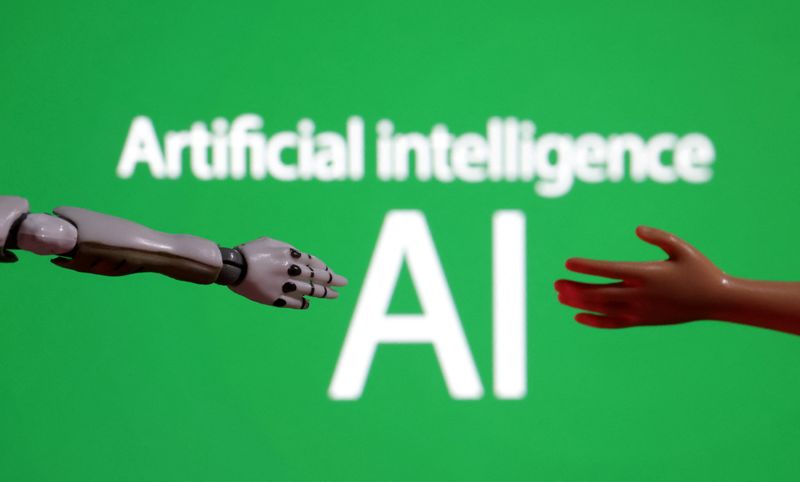Investing.com — Artificial intelligence (AI) technology is expected to profoundly transform the global economy in the coming years, with the U.S. at the forefront.
In a recent extensive report, TD Cowen analysts highlighted key themes heading into 2025, including the potential impact of AI on multiple levels.
Among those is a significant boost to productivity, estimated at $2 trillion, which could emerge as AI reduces labor costs by more than 15%, “and potentially replacing up to 20% of worker tasks for 80% of the workforce in the U.S. alone,” according to the report.
Investments in AI are accelerating, with TD Cowen projecting over $1 trillion in capital expenditures (capex) to fuel the next wave of advancements. The firm believes investors will be closely monitoring the evolution of tangible use cases, focused on commercialized products and supporting business models.
The integration of AI into human activities is expected to unlock substantial productivity gains. A key focus lies in autonomous vehicle technologies.
“The agentic AI innovation wave will extend to highly complex use cases that are directly integrated into daily human activities, such as in the emergence of autonomous vehicle capabilities delivered through a SaaS model,” the report states.
Companies like Tesla (NASDAQ:TSLA) and Waymo are already spearheading these efforts. Waymo, for instance, has set a goal to become the “world’s most trusted driver” and has demonstrated a 73% reduction in injury-causing crashes compared to human drivers in similar conditions.
Meanwhile, Tesla’s full self-driving (FSD) rollout in California and Texas is expected in 2025, and the electric vehicle (EV) giant has set a target for production of two million robocabs beginning in early 2026, aiming to exceed human driving capabilities in 2025.
However, the impact of AI extends far beyond technology-focused industries, influencing virtually all sectors of the economy. In healthcare, for instance, AI is poised to revolutionize drug discovery and development. TD Cowen highlights its potential to cut research and development costs by as much as 70%.
“We expect to see a continued high level of AI-enabled activity and investment in drug discovery, diagnostics, and related use cases across the healthcare industry.”
Overall, the pace of AI adoption is accelerating faster than that of cloud technology, according to TD Cowen.
“Advancements in generative AI appear to be moving on a logarithmic curve,” with generative AI increasingly driving its own evolution.
This, the firm notes, differs from past computing cycles in which technology advanced on a more linear scale.

